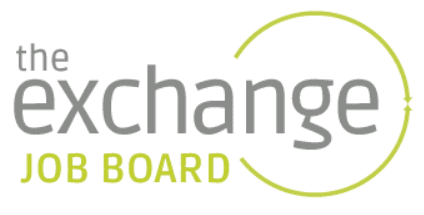In late January, the Southern region Analyst Fellowship cohort convened in Nashville, Tennessee to discuss issues surrounding change management and innovative ideas in education. Several distinguished education professionals from the Nashville area met with the Fellows to discuss the space for innovation and change in education organizations nationwide. Among these guests was Ravi Gupta, the founding director of Nashville Prep Charter School and an up-and-coming leader on the national scene, recently named one of Forbes’ Magazine’s “30 Under 30” in Law and Policy. The Fellows had a chance to discuss the school’s design with Ravi, followed by a student-led tour of the small but dynamic campus.
Amid some fervor in the city, Nashville Prep opened in the fall in 2011 with just a 5th grade class, and currently serves both 5th and 6th grades. (The school will expand by one grade each year until it eventually serves grades 5 through 12.) Under Ravi’s leadership and guidance, the school has an engaging and highly interactive curriculum coupled with a no-nonsense, no-excuses discipline policy for its largely economically disadvantaged students. So far, the model seems to be working: according to test scores from the end of the 2011-2012 school year, the students at Nashville Prep are performing above the state average on math and reading, even though many of them started at the school far below grade level.
The story of Nashville Prep and its young but capable founder is an inspiring one, and many Fellows were abuzz with excitement over what this example could mean for the national movement toward better schools for all children.
So what does a school like Nashville Prep, with its clear, no-excuses policies for both high achievement and discipline, mean for the national school choice movement? How does this sort of high-achieving charter school fit into the new framework of “finding the best fit” for every student?
Unlike some charter schools nationwide, especially in cities like New Orleans and Memphis, Nashville Prep was not an existing school that was taken over by a charter management group. The school is a start-up, built around Ravi’s vision and experience for how children best learn and achieve at the highest level. The school also has no mandated attendance zone in the city; all students enrolled at NP are there because they actively choose to be there. While the school boasts a “no expulsions” policy, Ravi and his leadership team leave no doubt about the kind of dedication to the school’s mission that is expected from both students and their parents alike. And a handful of families have opted out of NP’s mission and its classrooms, exercising their emerging right to school choice by enrolling their students elsewhere.
There is no doubt that for those students and parents who choose to commit to the school’s mission and structure, Nashville Prep is working – and working well. The students are actively engaged, the teachers are top-notch, and the state test results speak to the success of their methods. Our group was guided on the tour by several sixth grade students, who all spoke eloquently and with excitement about their school and their own achievements there. NP is also a vibrant example of parental choice at work: the students who opt to stay are thriving in the school, uninterrupted by those students who were not as compelled by the mission. The parents for whom NP was not a good fit were able to select another, more appropriate campus for their students.
Following the Fellows’ visit to Nashville Prep, our conversation addressed the outcomes for these parents and students who opted out: is there a better fit charter school in Nashville for these students? Or is the only alternative a neighborhood school which may or may not be delivering a quality education – and almost certainly is not performing at the level of NP?
These questions also persist in the national conversation around the movement toward parental choice and charter schools – for which we do not yet have all the answers. However, as Natasha Kamrani, president of the Nashville Public Education Foundation, also reminded our group in Nashville: not having all the answers right now is ok.
Yet these answers are precisely what we are all seeking in our work as Education Pioneers Fellows and future leaders in schools, districts, departments of education, and nonprofits. The desire for parental choice in where to send their children to learn will continue to be a driving force of the education reform movement. Continuing to address questions like those presented by Nashville Prep’s mission and success – and digging deeper into the data to improve the quality of education for all students – should be our motivating force as we lead this movement.



